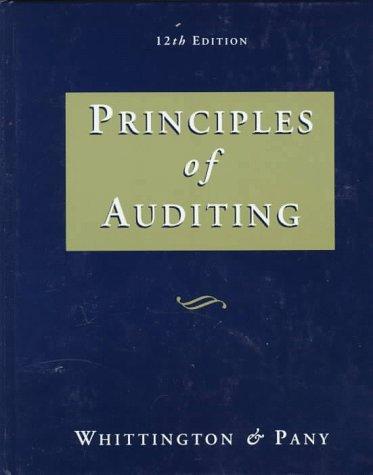Question
Product Pricing Using the Cost-Plus Approach Concepts; Differential Analysis Report for Accepting Additional Business Twilight Lumina Company recently began production of a new product, the
Product Pricing Using the Cost-Plus Approach Concepts; Differential Analysis Report for Accepting Additional Business
Twilight Lumina Company recently began production of a new product, the halogen light, which required an investment of $1,620,000 in assets. The costs of producing and selling 8,100 halogen lights are estimated as follows:
Variable costs per unit: Fixed costs: Direct materials$81 Factory overhead$324,000Direct labor18 Selling and admin. exp.162,000Factory overhead36 Selling and admin. exp.32 Total$167
Twilight Lumina Company is currently considering establishing a selling price for the halogen light. The president of Twilight Lumina Company has decided to use the cost-plus approach to product pricing and has indicated that the halogen light must earn a 20% rate of return on invested assets.
Required:
Question Content Area
Note: Round all percentages to two decimal places then use in subsequent computations, if applicable. Round all dollar amounts to the nearest dollar.
1. Determine the amount of desired profit from the production and sale of the halogen light. $fill in the blank ba407b010058fdf_1
2. Assuming that the total cost concept is used, determine the following:
a. Cost amount per unit$fill in the blank ba407b010058fdf_2 b. Markup percentagefill in the blank ba407b010058fdf_3%c. Selling price of the halogen light$fill in the blank ba407b010058fdf_43. Assuming that the product cost concept is used, determine the following:
a. Cost amount per unit$fill in the blank ba407b010058fdf_5 b. Markup percentagefill in the blank ba407b010058fdf_6%c. Selling price of the halogen light$fill in the blank ba407b010058fdf_74. Assuming that the variable cost concept is used, determine the following:
a. Cost amount per unit$fill in the blank ba407b010058fdf_8 b. Markup percentagefill in the blank ba407b010058fdf_9%c. Selling price of the halogen light$fill in the blank ba407b010058fdf_105. Comment on any additional considerations that could influence establishing the selling price for the halogen light.
Prices of competing productsGeneral economic conditions in the marketPrices of competing products and general economic conditions in the marketNone of the abovePrices of competing products and general economic conditions in the market
Feedback Area
Feedback
1. Multiply the desired profit percentage by the desired amount (invested assets).
2. (a) Divide all variable and fixed costs by the number of units produced. (b) Divide the desired profit by the total costs. (c) Add cost (a) and markup [(a) x (b)].
3. (a) Divide the total manufacturing costs (direct labor, direct materials, and overhead) by the number of units produced. (b) Divide the desired profit plus the total selling and administrative expenses by the total manufacturing costs. (c) Add cost (a) and markup [(a) x (b)].
4. (a) Total the variable costs per unit. (b) Divide the desired profit plus the total fixed costs by the total variable costs. (c) Add cost (a) and markup [(a) x (b)].
5. Determine the other factors that will influence the pricing decisions.
Question Content Area
6. Assume that 4,500 units of the halogen light have been produced and sold during the current year. Analysis of the domestic market indicates that 3,600 additional units of the halogen light are expected to be sold during the remainder of the year at the normal product price determined under the total cost concept. Twilight Lumina Company received an offer from Contech Inc. for 1,400 units of the halogen light at $202.50 each. Contech Inc. will market the units in Southeast Asia under its own brand name, and no selling and administrative expenses associated with the sale will be incurred by Twilight Lumina Company. The additional business is not expected to affect the domestic sales of the halogen light, and the additional units could be produced using existing capacity.
a. Prepare a differential analysis report of the proposed sale to Contech Inc.
Differential revenue from accepting offer: Revenue from sale of additional unitsVariable costs of additional unitsRevenue from sale of additional units$Revenue from sale of additional unitsDifferential cost of accepting offer: Revenue from sale of additional unitsVariable costs of additional unitsVariable costs of additional unitsVariable costs of additional unitsDifferential income (loss) from accepting offer$fill in the blank d20355092015fd9_5Feedback Area
Feedback
6.(a) Follow Exhibit 11 in the text. Subtract the differential cost of accepting the offer from the differential revenue from accepting the offer. Determine the differential effect on income.
Step by Step Solution
There are 3 Steps involved in it
Step: 1

Get Instant Access to Expert-Tailored Solutions
See step-by-step solutions with expert insights and AI powered tools for academic success
Step: 2

Step: 3

Ace Your Homework with AI
Get the answers you need in no time with our AI-driven, step-by-step assistance
Get Started


